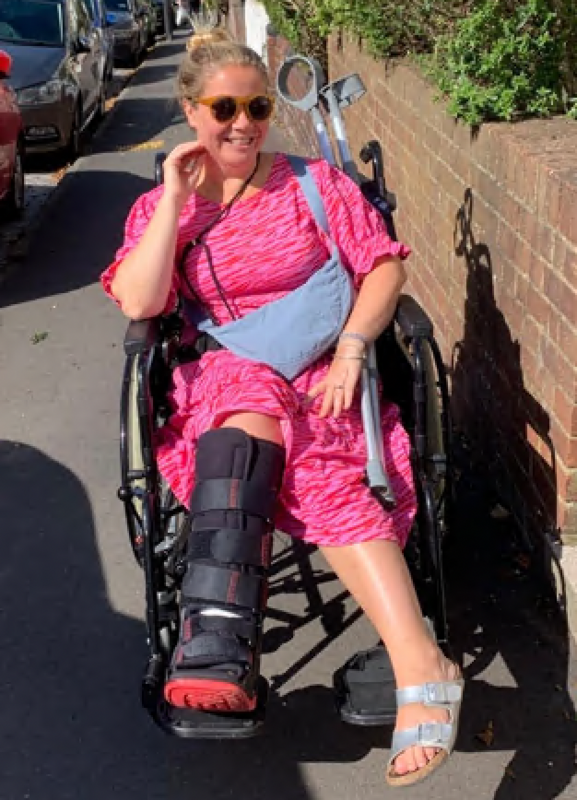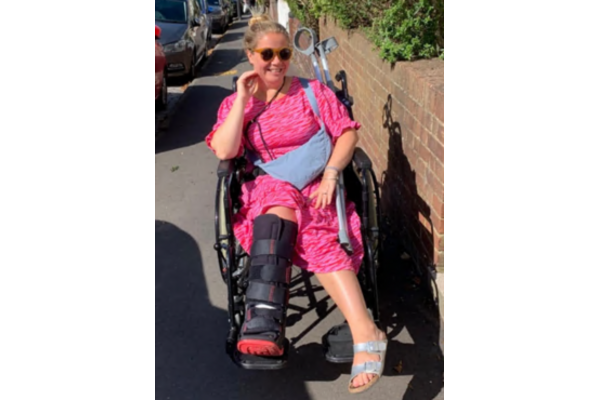
On Friday 30th August whilst on a day out with my family I managed to dislocate and break my ankle. I've never felt pain like it in my life (and I've had two children!).
I was taken to Torbay hospital by ambulance, where they repositioned my ankle and put a temporary cast on it. Just over a week later I had an operation, involving lots of metal plates and screws, to fix it properly.
So, what have I learnt from this? That I'm very lucky! Lucky that this accident happened when I was in the UK rather than abroad on holiday where I had been a few days before!
Lucky that we have the NHS - free at the point of delivery with amazing paramedics / nurses / doctors / physios etc who are just so dedicated. I'm also lucky that I will get better over time and return to doing the things I love - like walking the dog, running, going to gym classes etc.
What I've learnt, however, is that not everyone is as lucky as me. The people we support at Bristol After Stroke, who have suffered a stroke and can't do the things that many people take for granted, for instance.
Our clients often struggle every day just to leave their house: they have constant barriers that get in the way of them trying to get better, improve fitness or reduce loneliness.
Sport is often not accessible for people who have had a stroke: many can't get to exercise classes because they can no longer drive, are not on a bus route or there is no community transport for them to get to the class on time.
Even if they can get to classes, they might be too hard, or make them feel like they stand out… that they are different… which only goes on to alienate and isolate them. And we know that community and feeling like “you belong” is so important in maintaining and improving wellbeing.
Bristol After Stroke (who I work for, and therefore might be a bit biased about!) are amazing, making getting back to sport or fitness possible.
We offer a course called Next Steps ¬ a physiotherapy-led course run by Dr Praveen Kumar, who tailors exercises to help improve strength and fitness and also has the ability of making it fun.
We also have two specialist groups: one for walking football for stroke-affected people and another for walking netball (the only one like it in the country - and a group that has won an award from England Netball for inclusivity).
These groups offer so much: an opportunity to get fit and enjoy sport, but mostly they offer the chance of not feeling like you stand out… feeling like you belong, surrounded by people who get it, who become friends, and confidants, and reduce loneliness.
We need more groups like this and obviously better community transport for disabled people. But what Bristol After Stroke do is a wonderful start.





